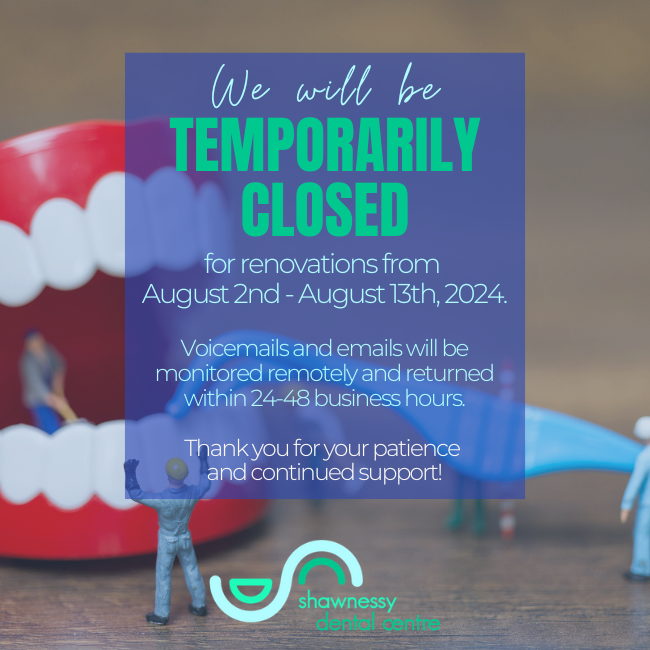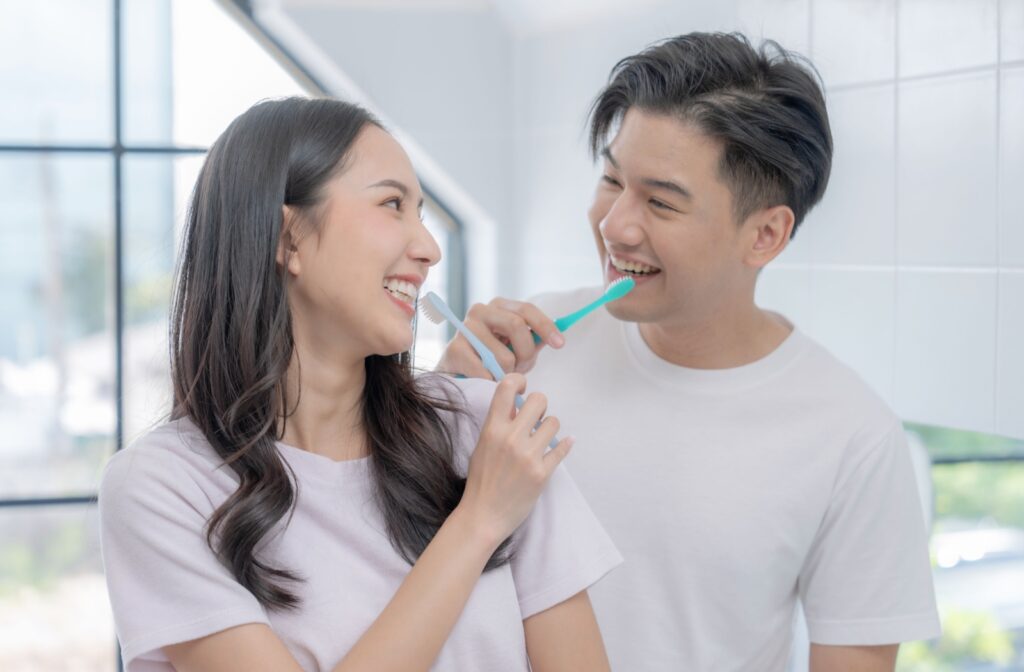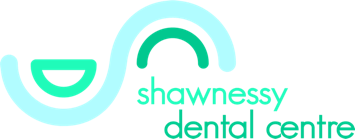Keeping our teeth and gums healthy isn’t just about having a nice smile—it’s also essential for our overall health.
Oral health is crucial in preventing dental diseases and can even impact conditions such as heart disease and diabetes. With so much riding on our daily brushing routine, it’s no wonder there is debate about whether we should brush our teeth before or after breakfast.
While the case can be made for brushing after your first meal of the day, we generally recommend brushing your teeth before breakfast. Brushing before eating helps to remove plaque that has built up overnight and protects your enamel from acidic foods and beverages consumed during breakfast.
The Case for Brushing Before Breakfast
Brushing your teeth before breakfast can be beneficial for several reasons. Overnight, your mouth becomes a breeding ground for bacteria due to decreased saliva production, which usually helps cleanse your mouth. Brushing first thing in the morning removes these bacteria and any food particles left from the previous night, giving you a cleaner slate to start your day.
Preventing Morning Breath & Protecting Teeth
Many people contend with morning breath, and brushing before breakfast can help mitigate this issue. Cleaning your mouth before eating reduces the bacterial load responsible for foul odours.
Additionally, consuming acidic foods and drinks like orange juice, coffee, or fruit can soften your tooth enamel. Brushing before breakfast creates a protective fluoride barrier from your toothpaste, which can help safeguard your enamel against these acids.
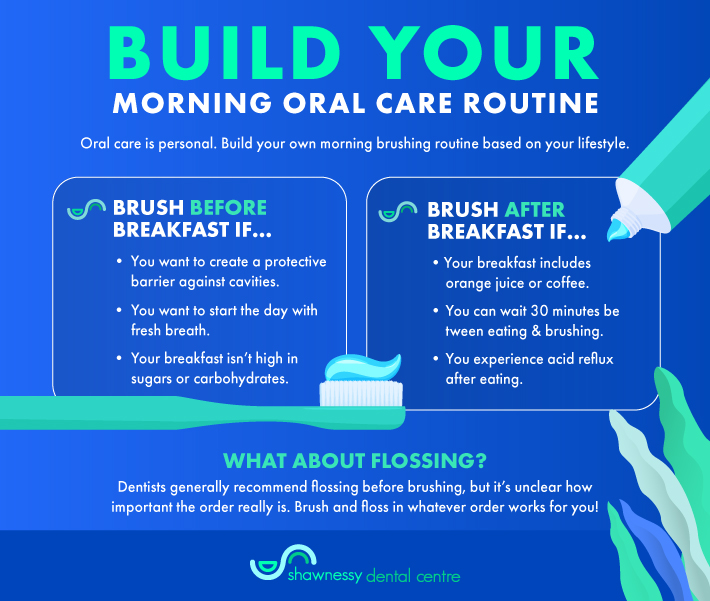
Is It OK to Brush After Breakfast?
On the flip side, some argue that brushing after breakfast is more effective. By waiting, you can cleanse your mouth of the food particles and sugars from your meal, which can contribute to plaque formation and cavities if left untreated.
Protecting Tooth Enamel from Acidic Foods & Drinks
When you eat, especially acidic foods, your enamel becomes temporarily softened. Brushing immediately after eating can wear away softened enamel. Waiting at least 30 minutes after eating allows saliva to neutralize the acids and re-harden your enamel.
Exceptions to the Brushing Rule
While the general recommendation leans towards brushing before breakfast, there are certain situations where brushing after breakfast might be more beneficial.
If your breakfast includes foods high in sugars or carbohydrates, these can become acids that attack your teeth, leading to cavities. If you wait at least 30 minutes before brushing, brushing after breakfast can help remove these harmful substances from your teeth.
Additionally, you may have specific medical or dental conditions requiring brushing after eating. For example, those with acid reflux might need to brush after breakfast to remove any residues that could exacerbate their condition.
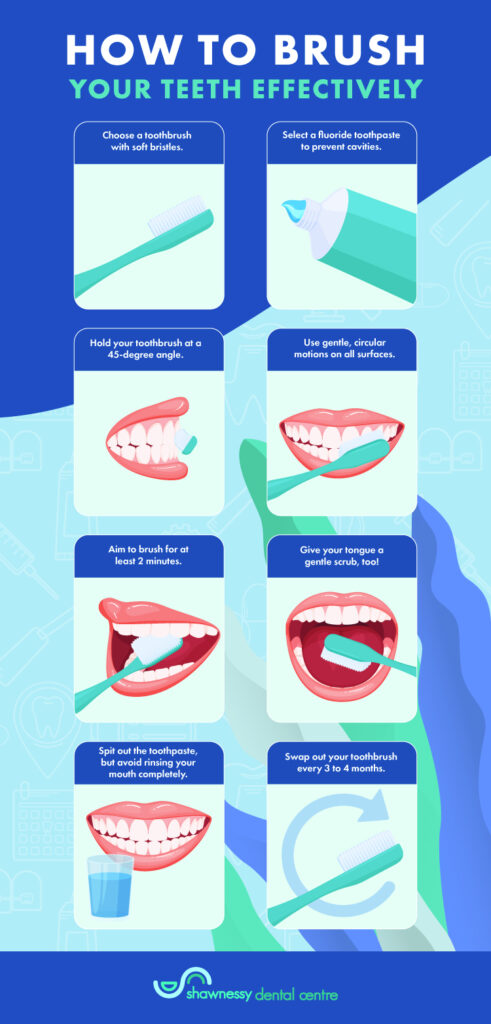
Tooth-Brushing Tips
Regardless of whether you choose to brush before or after breakfast, proper brushing technique is key for maintaining optimal oral health. Here are some tips to keep in mind:
Choose the Right Toothbrush & Toothpaste
- Use a toothbrush with soft bristles to avoid damaging your gums and enamel.
- Select a fluoride toothpaste to help strengthen your teeth and prevent cavities.
Brush for the Right Amount of Time
- Aim to brush for at least 2 minutes, spending about 30 seconds on each quadrant of your mouth.
Use the Proper Brushing Technique
- Hold your toothbrush at a 45-degree angle to your gums.
- Use gentle, circular motions to brush each tooth’s front, back, and chewing surfaces.
- Avoid brushing too hard, which can lead to gum recession and enamel erosion.
Don’t Forget Your Tongue
- Bacteria and food particles can accumulate on your tongue, contributing to bad breath and plaque buildup.
- Give your tongue a gentle scrub to keep your entire mouth fresh and clean.
Rinse & Spit, But Don’t Overdo It
- After brushing, spit out the toothpaste, but avoid rinsing your mouth completely with water; leaving a small amount of toothpaste residue can allow the fluoride to continue protecting your teeth.
Replace Your Toothbrush Regularly
- Swap out your toothbrush every 3 to 4 months or sooner if the bristles are frayed.
Should You Floss Before or After Brushing?
Dental professionals are somewhat divided on this matter, but many advocate for flossing before brushing. Flossing first removes food particles and plaque from between teeth and along the gum line. This debris can then be easily brushed away, leading to a cleaner mouth.
That being said, a scientific review found no significant difference in plaque index between flossing before or after brushing. If you prefer flossing after brushing, it’s still a net positive for your oral health!
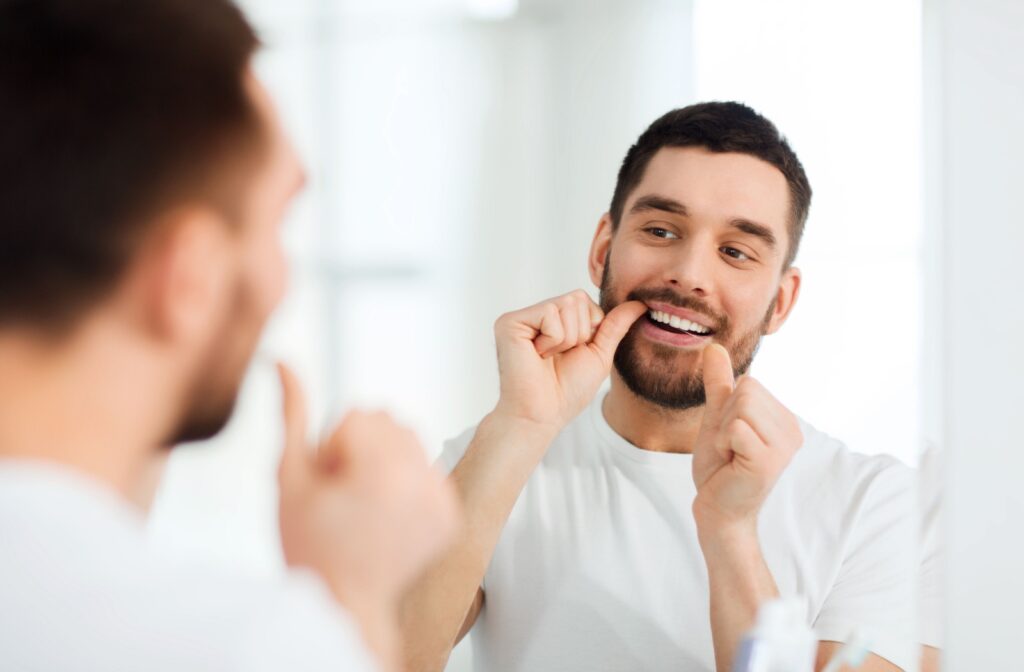
Optimize Your Brushing Routine
The right order of operations in the debate of brushing before or after breakfast depends on you and your routine. The key takeaway is to focus on brushing effectively, using proper techniques, and incorporating fluoride to protect your teeth. Whether you choose to brush before or after breakfast, prioritizing good oral hygiene is the goal. For personalized tips on maintaining oral health, visit Shawnessy Dental Centre.
